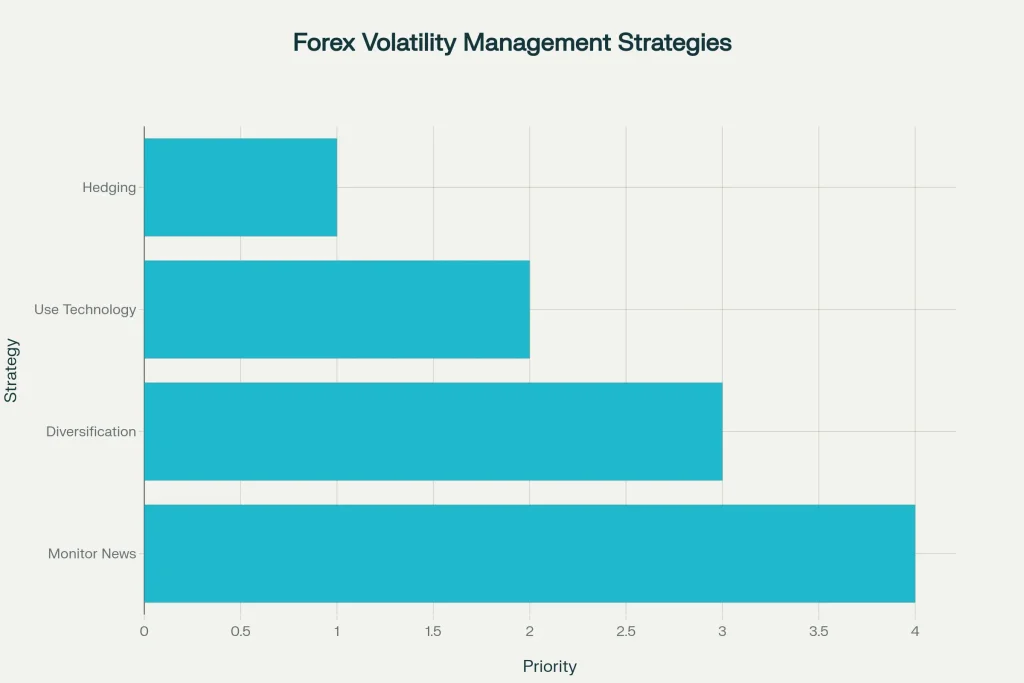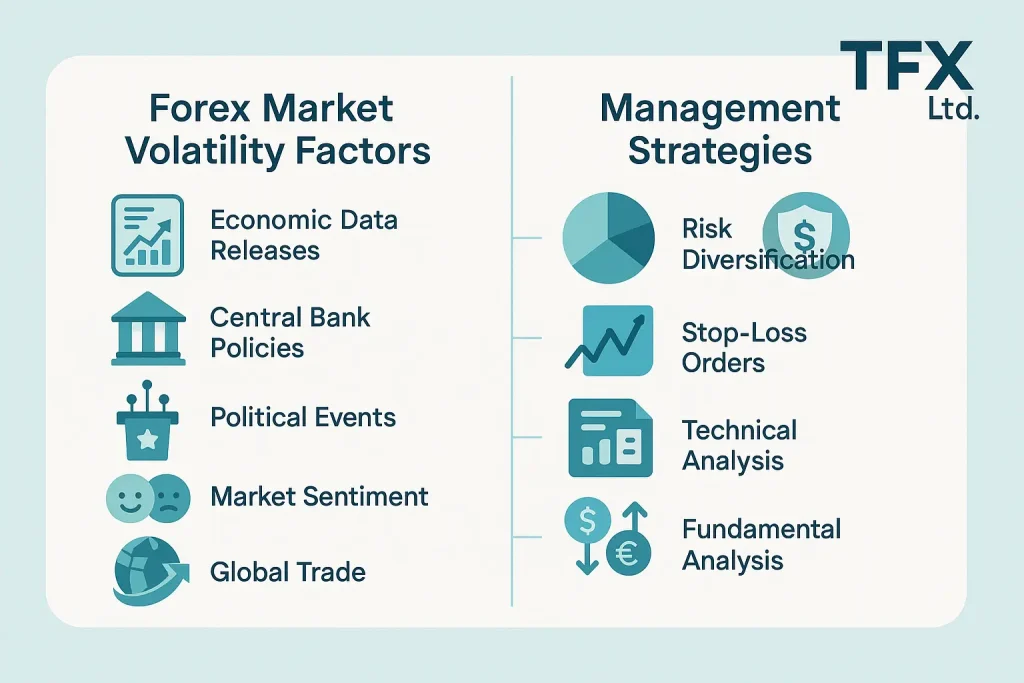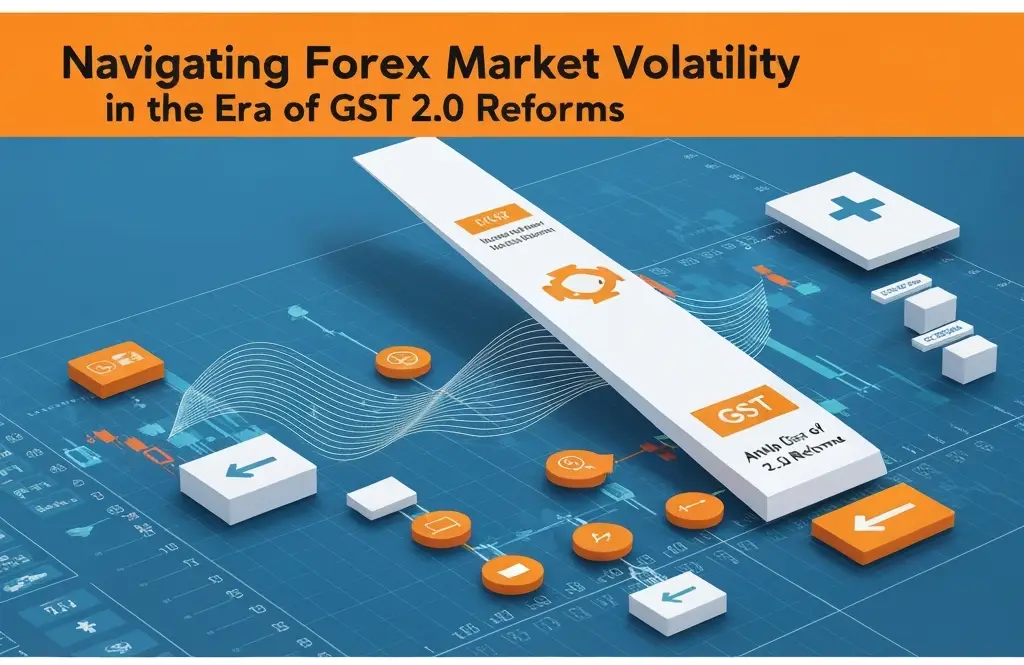The foreign exchange (Forex) market in India is presently witnessing substantial Forex market volatility due to not only the worldwide economic influence but also factors impacting the domestic economic landscape. Among these domestic developments, the July 1, 2025, implementation of GTS 2.0 and the potentially lasting ramifications on various sectors in the Indian economy will lead to changes. Being influenced by global events such as U.S. trade policies also impacting the rupee’s performance, we will discuss the current state of the Forex market, the intended changes from GST 2.0 and how we can navigate through the considerable levels of volatility.
Current State of the Forex Market
As of September 11, 2025, the Indian rupee (INR) depreciated to a record low of 88.44 against the U.S. dollar as a result of U.S. tariffs on Indian goods. The 2025 total of $11.7 billion in foreign investment leaving India has added to the rupee’s erosion. Despite the Reserve Bank of India’s attempts to stabilise the currency, including intervention by selling dollars, the rupee is still under significant pressure. Yet the anticipation of rate cuts by the U.S. Federal Reserve has provided some reprieve, with the rupee strengthening slightly to 88.30 on September 12.
According to the Forex market news over the last couple of weeks, even though the rupee is under pressure, it is primarily due to the potential strength of the U.S. dollar and global geopolitical factors that are adding to the volatility. The ongoing pressure on the rupee erodes expectations of the efforts of the Reserve Bank of India and government initiatives mildly alleviating this pressure, but the longer-term outlook is uncertain. As such, the reality for businesses is that viewing risk in the bolts and nuts of a frenetic Forex environment requires always remaining vigilant.
Understanding GST 2.0: Key Highlights
GST 2.0 is a comprehensive revision of India’s Goods and Services Tax system. More simplified rates and slabs were included to lighten the tax burden of the economy. Below is an analysis of the primary features of GST 2.0:
- Merit Rate (5%) is suggested to apply to essential goods and services like apparel, health, medical items, affordable housing, and the like.
- Standard Rate (18%) is proposed for most goods and services
- De-Merit Rate (40%) is proposed for luxury goods like luxury cars, tobacco, etc.
The changes are expected to result in lowered prices for the consumers as well as greater competitiveness in some industries. The auto sector represents a good example since companies like Honda and Volkswagen are dropping prices by as much as ₹95,500 and ₹3.27 lakh, respectively.
However, the government expects to lose around ₹1 lakh crore in revenue because of the changes. These changes could have fiscal implications that could impact the government’s budget, and hence, this may have indirect implications for the Forex market.
Impact of GST 2.0 on the Forex Market
While GST 2.0 aims to encourage at-home, the effects on the Forex market have mixed potential outcomes:
- Inflation Control: Reduction in inflation (especially on essentials) could potentially take some pressure offf of the rupee. A steady price environment may decrease the necessity for the RBI to raise interest rates. This could be positive for the rupee.
- Sector Appeal: Sectors like automobiles and textiles are beneficiaries of reduced tax rates. A reduced tax rate may potentially lead to strengthening exports. Any increase in demand for rupee purchases creates upward pressure on valuation.
- Fiscal Position: Although on the theoretical approach, disruptive USP benefits taxes, and are meant for long-term goals, the short-term revenue loss can lead to fiscal pressure on the Indian government. Market sentiment towards the Forex market would remain dependent on the government’s approach towards growth and the implications of honouring its fiscal responsibilities.
- Foreign Portfolio Investment (FPI): Tax reforms could provide a lesser tax burden, thus enticing foreign investors. At the same time, market volatility and rupee depreciation may suppress foreign investment inflows.
That is, long-term viability of GST 2.0 relies on the extent to which GST 2.0 measurements stimulate growth and fertility prohibitively taper fiscal deficit. In the short term, there are concerns about deficits and depreciation, as well as the feedback loop performance of GDP, trade deficit, supply and demand dynamics that impact the effects of the Forex market.
Strategies to Manage Forex Market Volatility

In the current climate of volatility in the Forex market, it is important that businesses and investors develop ways to manage risk. Here are some strategies:
1. Hedging
Hedging implements protection strategies that use financial instruments like forward contracts and options, limiting your future exchanges. If you hedge, you effectively lock into an exchange rate already, thereby ensuring that any adverse changes in the foreign exchange market do not affect your costs or revenues, thereby providing businesses with needed certainty and predictability.
2. Diversification
Diversifying investments in various currencies and assets can lessen the impact of adverse currency price movements or valuations in an investment portfolio. Spreading risk through diversification is key to protecting investment portfolios from unexpected foreign exchange price movements.
3. Take Note of World Developments
Be aware of major worldwide economic reports, significant policy changes, and geopolitical events. News surrounding currencies in the Forex market serves an important purpose in aiding businesses and investors in the ability to project changes in their currency valuations.
4. Use Technology
Utilising sophisticated trading platforms and real-time data will help any business act quickly in an effort to protect against currency fluctuations. An automated trading system can provide you with the option to act on your strategy, which you have predefined conditions to have executed.
Forex Market News: Staying Informed

Keeping up to date with the latest Forex market news is important if you want to understand currency fluctuations. Real-time updates, expert commentary, and data on all things global will help ensure traders make decisions based on a real understanding of their environment. Subscription to reputable news sites focused on financial markets will help keep you up to date with market-moving headlines.
Financial market news platforms such as Bloomberg, Reuters, and Indian news sites provide deep and granular coverage of exchange rate movements, trade policy, and global economic conditions. By keeping informed, businesses and investors can more easily change their plans to limit risk exposure.
Conclusion
After the implementation of GST 2.0 and given the developments in the global economy, the complete Forex market in India is under the influence of volatility. Furthermore, despite some short-term challenges in the Indian Forex market arising from global economic tensions and depreciation of INR, there are strategies, including: (i) long-term hedging, (ii) diversification, and (iii) just staying informed. A plan can be devised to limit volatility but to ensure that businesses and investors can profit from periods of volatility.
For those in search of a vending platform to experience Forex trading in today’s ever-changing market, TFX has an entire suite of services to trade. With real-time, up-to-date Forex market news and analysis along with intraday and swing trading tools on a user-friendly interface, TFX provides traders with the latest tools to inform their trading decisions. TFX is committed to transparency and provides the support necessary for a seamless trading experience.
As India acclimates to these reforms, the impact on the Forex market will continue to develop over time. Nevertheless, businesses will be best served by a risk management approach and being informed in developing strategies to best benefit from the volatility represented by the Forex market.




